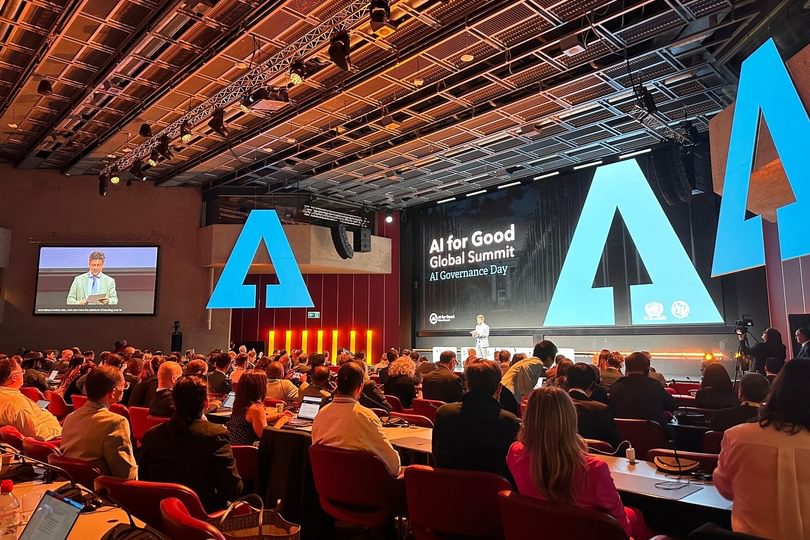
May was a busy month for the Oxford Martin AI Governance Initiative, with programme director Professor Robert Trager playing key roles at two leading AI summits in South Korea and Switzerland.
Professor Trager first spoke on two panels – one on the safety of AI technologies and one on broadening access to AI technologies – at the AI Seoul Summit co-hosted by the Republic of Korea and UK. During the first panel, he focused on the need for an international reporting regime for AI developers and compute providers.
‘An international reporting regime would enable detection of attempts to avoid domestic regulation.
‘For instance, it would facilitate detection of distributing system training between compute providers and across national boundaries to avoid regulatory scrutiny of large models,’ he said during his presentation.
An international reporting regime for developers and compute providers would face challenges, he acknowledged.
Confidentiality concerns of compute providers’ customers are one, and it would be important to address these by reporting only metadata where possible, adopting privacy preserving techniques, and employing existing technical and legal approaches to enable compute providers to detect criminal activity such as unauthorized crypto mining.
The national security concerns of countries are another that may require certain exceptions to reporting requirements.
The AI Seoul Summit in the eponymous South Korean capital built on the first AI Safety Summit at the UK’s Bletchley Park in November 2023, convening international governments, AI companies, academia, and civil society to further global discussions on AI safety and governance.
The event aimed to shape a coherent global strategy on AI and focused on three critical priorities – reaffirming the commitment to AI safety and developing a comprehensive safety roadmap, promoting innovation within AI development, and ensuring the equitable sharing of AI’s opportunities and benefits.
Moderating AI Governance Day
Professor Trager then moved onto Swiss city Geneva to moderate the AI Governance Day of the AI for Good Summit. The AI Governance Initiative worked with the UN’s International Telecommunication Union (ITU) to develop proceedings for the day. Professor Trager then moderated the entire AI Governance Day, which brought together digital ministers, civil society, and academic leaders to discuss the international governance of AI.
He said: 'The AI Governance Day brought together global stakeholders to discuss how to move from principle to implementation of international AI governance. Participants focused on the themes of inclusivity, fairness, and safety.'
The AI for Good Global Summit is the leading action-oriented United Nations platform promoting AI to advance health, climate, gender, inclusive prosperity, sustainable infrastructure, and other global development priorities.
AI for Good is organized by the ITU – the UN specialized agency for information and communication technology – in partnership with 40 UN sister agencies and co-convened with the Swiss government.